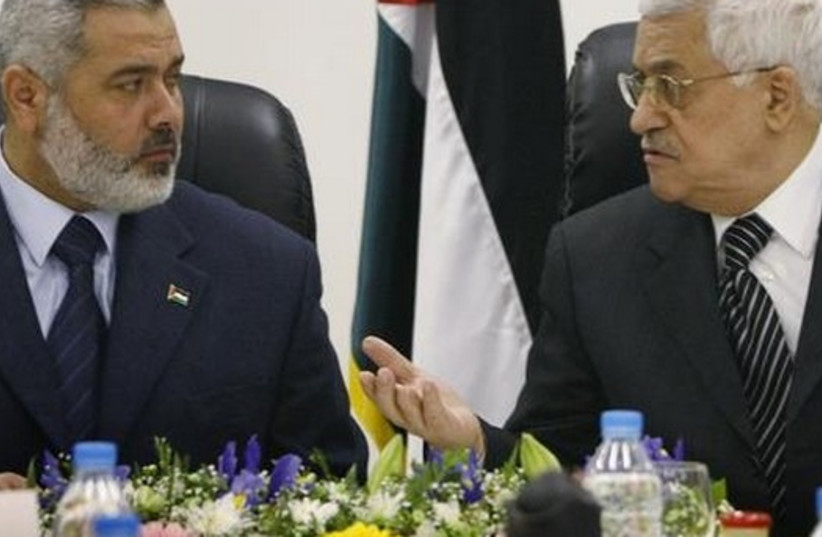Rival Palestinian factions meeting in Algiers for talks mediated by the Algerian government agreed on Thursday to resolve 15 years of discord through elections that will be held within a year, a Palestinian and an Algerian official said.
However, there was skepticism back home that they would deliver any concrete changes after previous such promises of elections failed to materialize.
The leaders of 14 factions, including President Mahmoud Abbas's Fatah movement and the Islamist group Hamas, held two days of talks in the run-up to an Arab summit in Algiers next month.
Under the agreement, to be formally announced later on Thursday, the parties promised to "speed up the holding of presidential and legislative elections in all of the Palestinian territories including Jerusalem" to within a year, according to officials.
It also recognized the Palestine Liberation Organisation, of which Abbas is the head, as the sole representative of the Palestinian people, calling for elections for its national council within a year.

What is the cause of the split?
Political splits since 2007 have weakened Palestinian aspirations to further their cause of statehood and have prevented presidential and parliamentary elections since ballots were last cast in 2005 and 2006.
Hamas' legislative victory then laid the ground for the political rupture. The Islamist group, which opposes peace with Israel, seized control of the Gaza Strip in 2007 while Abbas' Western-backed Palestinian Authority stayed dominant in the West Bank.
In the Palestinian territories, people have been following the talks in Algeria with little optimism that an agreement will deliver change, and sources familiar with the talks said delegations had failed to agree on forming a unity government.
Algerian President Abdelmadjid Tebboune wants to use next month's Arab League summit - the first since before the COVID-19 pandemic - to cement his country's place as a regional heavyweight. It has held talks for months with Palestinian factions to pave the way for a deal.
Renewed demand for Algerian oil and gas, and the end of mass street protests that rocked the country from 2019-20, have bolstered its confidence on the international stage.
However, its ongoing dispute with neighboring Morocco, which has erupted into both countries' relations with major European states, has overshadowed the run-up to the summit.
